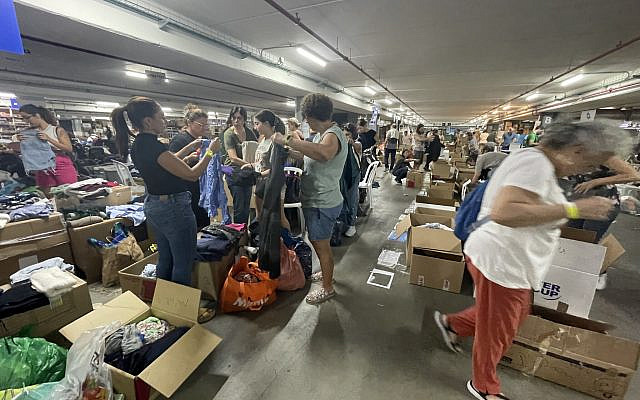Reconstructing Israel’s social safety net

The October 7 attacks and the months of subsequent war have left Israel confronting not only the scars of battle but also the fault lines within its welfare state. What once may have seemed like minor imperfections in the system have now been thrust into stark relief, widened by the pressures of war and the demands of recovery.
The toll inflicted upon civilians and soldiers alike during the attacks, coupled with the anguish of hostages and their families, the displacement of hundreds of thousands, and the shattered lives left in its wake, has made clear the urgent need for a comprehensive overhaul of Israel’s welfare system. This moment of upheaval presents not only challenges but also a unique opportunity to reconstruct our social safety net, ensuring that no citizen is left behind as the country tries to move forward.
In this endeavor, a coalition of leading welfare scholars from Hebrew University, in collaboration with the Menomadin Foundation, has crafted a blueprint aimed at confronting the present crises and fortifying our society for the trials that lie ahead.
A central address
At its core, the plan advocates for a radical restructuring of our welfare infrastructure, envisioning the establishment of a Ministry of Social Welfare as a linchpin to consolidate resources and streamline services. By dismantling bureaucratic barriers and fostering synergy among disparate agencies, this bold move could expedite aid to those in dire need.
The proposal calls for a departure from antiquated financing models, particularly in the most vulnerable localities, which have long languished under the weight of insufficient resources. By liberating these communities from the constraints of a flawed funding, we can empower them to deliver vital social services with newfound success.
Central to this vision is a steadfast commitment to gender equity, ensuring that the spouses of soldiers receive the support they deserve as they navigate the complexities of reintegration into civilian life. By extending a helping hand to these unsung heroes, we honor their sacrifices and reaffirm our commitment to a fair and just society.
Bottom-up, top-down
The transformation we seek cannot be completed by government alone. Recognizing the indispensable role of civil society in times of crisis, we must forge stronger partnerships with grassroots organizations to provide targeted assistance to those most in need. It is through this synergy between state and society that we can cultivate resilience and foster a sense of solidarity that transcends adversity.
As we confront the daunting challenge of rebuilding shattered lives, we must not overlook the plight of the displaced and the homeless. By providing stable housing and comprehensive support services, we can restore dignity to those who have been cast adrift by the tempest of war.
In rural communities, where the scars of conflict run deep, we must empower residents to chart their own path to recovery. By fostering local ownership and agency, we can ensure that the rebuilding process is not imposed from above but emerges organically from within, rooted in the unique needs and aspirations of each community.
A country suffering post-trauma
As Israel endeavors to mend the visible scars of conflict, the psychological toll exacted upon its citizens emerges as a profound challenge. The trauma inflicted by the October 7 attacks and subsequent warfare has left indelible marks on the collective psyche, necessitating urgent attention and innovative approaches to mental health care.
Expanding mental health services represents a cornerstone of our post-trauma recovery efforts. By dismantling stigmas surrounding mental illness and increasing access to counseling, therapy, and psychiatric care, we can offer solace to those haunted by the specter of violence and loss. Furthermore, integrating trauma-informed practices into all facets of our healthcare system will ensure that survivors receive the empathetic support they need to navigate the complex terrain of healing.
In parallel, safeguarding the rights and well-being of hostages and their families demands a multifaceted approach. Beyond physical protection, we must provide specialized support services tailored to address the unique challenges faced by those who have endured captivity. By offering comprehensive psycho-social assistance, legal advocacy, and reintegration programs, we can mitigate the lasting impact of trauma and facilitate the journey towards healing and recovery.
***
For all the urgency of this moment, we must not lose sight of the long road ahead. As we embark on this journey of renewal, we must remain steadfast in our commitment to resilience, equity, and dignity for all our citizens. It is only through collective action and unwavering resolve that we can forge a future worthy of the sacrifices made in the midst of conflict.



